At its heart, Roanoke is a serious food town. Stephanie Ganz explores its thriving restaurant scene and introduces us to both the stalwarts and the upstarts giving the Star City its culinary cred.
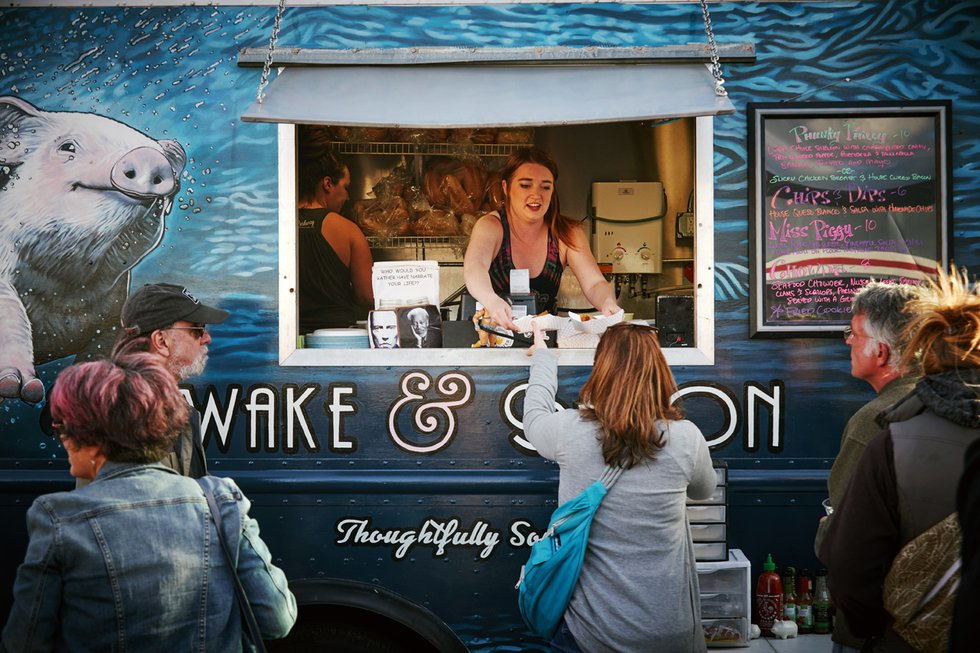
Wake and Bacon food truck in Grandin Village serves spicy pork spring rolls.
Photos by Fred + Elliott

Brandon Davis, co-owner of Pop’s Ice Cream & Soda Bar.
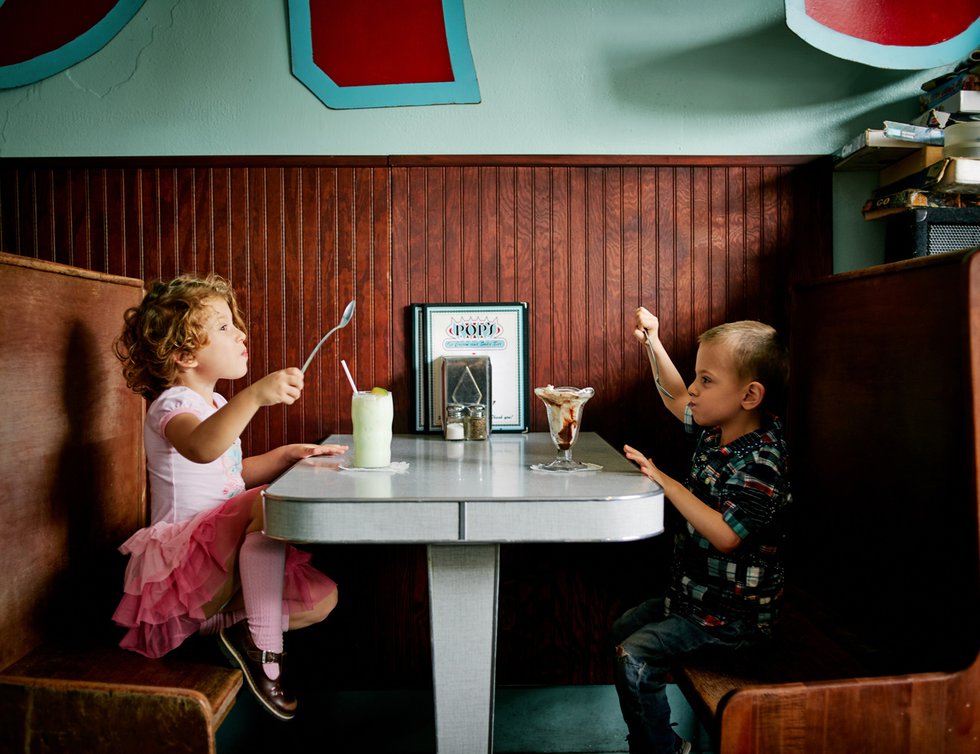
Children enjoy a lime freeze and chocolate sundae at Pop’s.
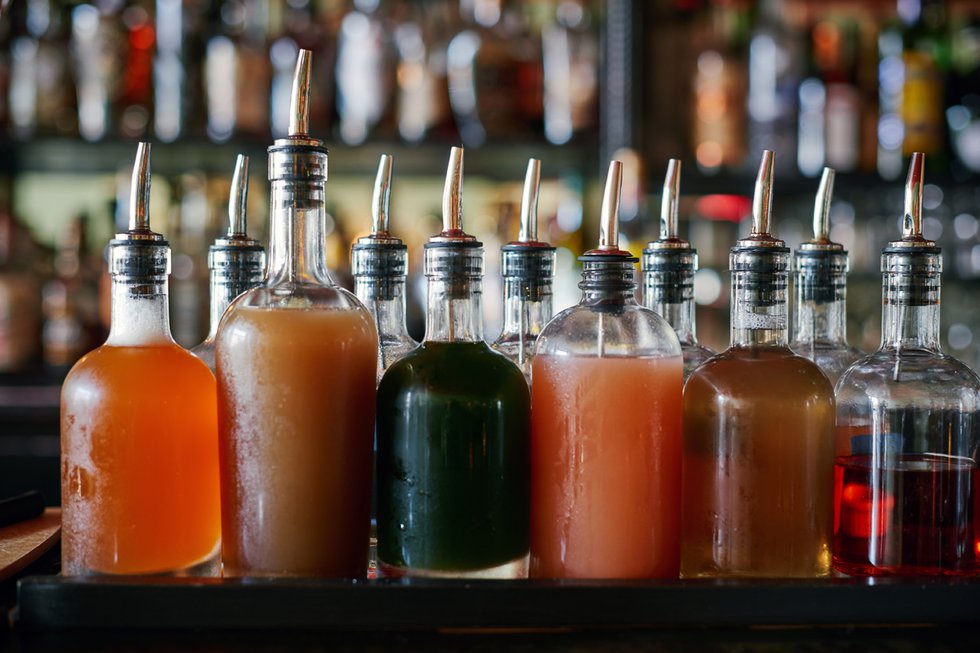
Shrubs and tonics for craft cocktails at Lucky.
There’s a warm feeling that settles in my bones as the Blue Ridge Mountains come into view driving south down I-81. Mile by mile I am getting closer to my hometown of Roanoke, and I realize that for the first time in my life, I’ve lived away from it as long as I lived there—17 years. Growing up in the ’90s, I never considered Roanoke to be a foodie town, but then I wouldn’t have considered myself to be a foodie person, and I would have been wrong on both counts.
Food has always been part of Roanoke’s soul—from the City Market, the oldest continuously operating open-air farmers’ market in the state, to the family-owned restaurants that have been tabling plate after plate for decades. But now, the Star City has a fresh crop of chefs who are bringing new attention to its restaurant scene.
Chef Aaron Deal of The River & Rail is one of them. Since 2012, he has put the bounty of the New River Valley to good use and created long-term relationships with the farmers who work the surrounding land. The terrain of the valley, well-suited for small farms, makes Roanoke and nearby cities a kind of earthy Sonoma—less wine, more vegetables, and each with their own signature terroir.
Deal, who grew up in western North Carolina, takes a decidedly Southern approach to cooking, using all the bits and pieces of the harvest to create his dishes, which include a housemade salumi board and a pig head terrine. His menu is a model of regional sourcing: Dinner features Virginia parsnips, Carolina Gold rice grits and South Carolina blue cheese, and anchoring the bar are Virginia cider, beer, wine and spirits. This approach makes The River & Rail a standout, the crown jewel of the Roanoke dining scene.
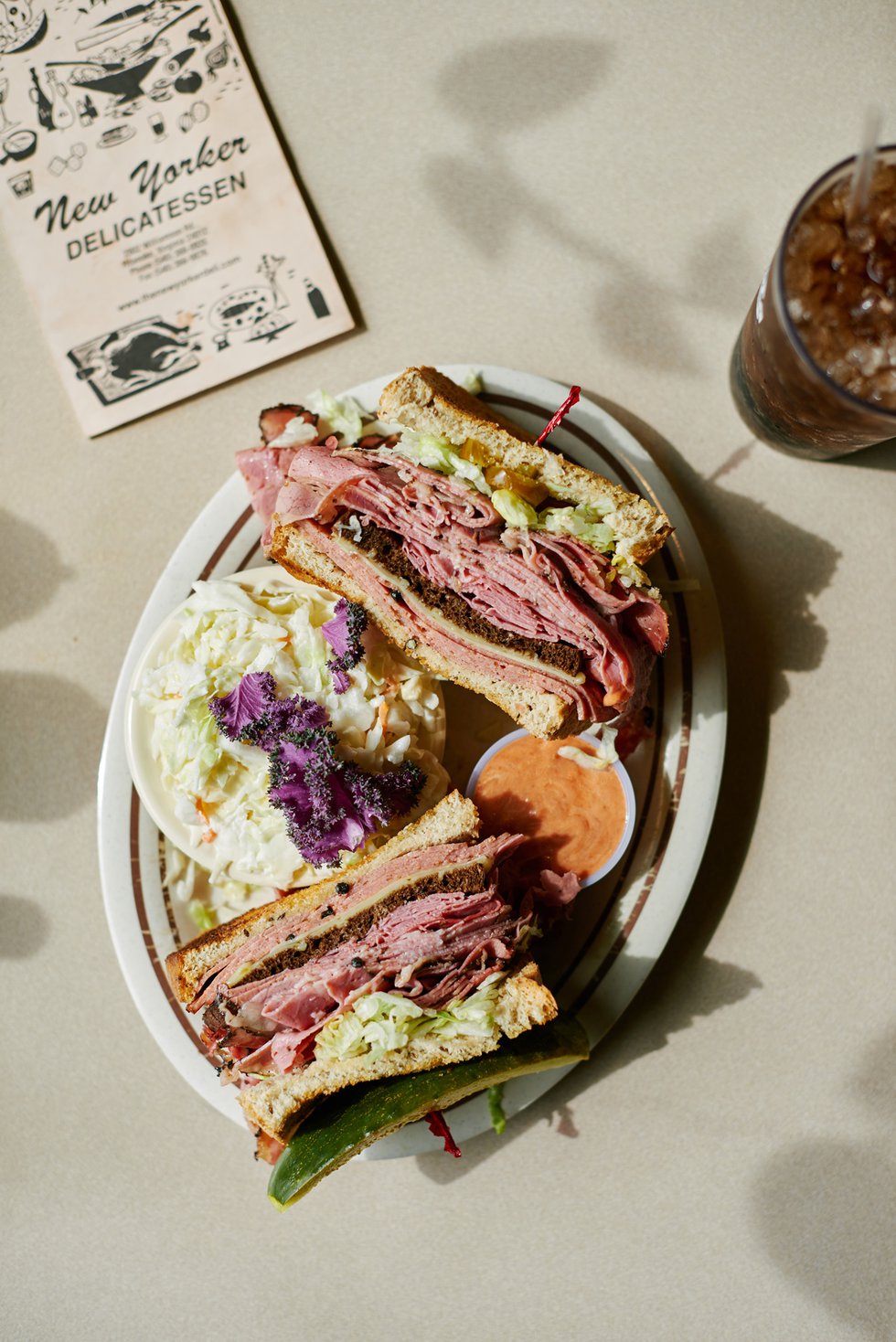
Pastrami sandwich at the New Yorker Deli.
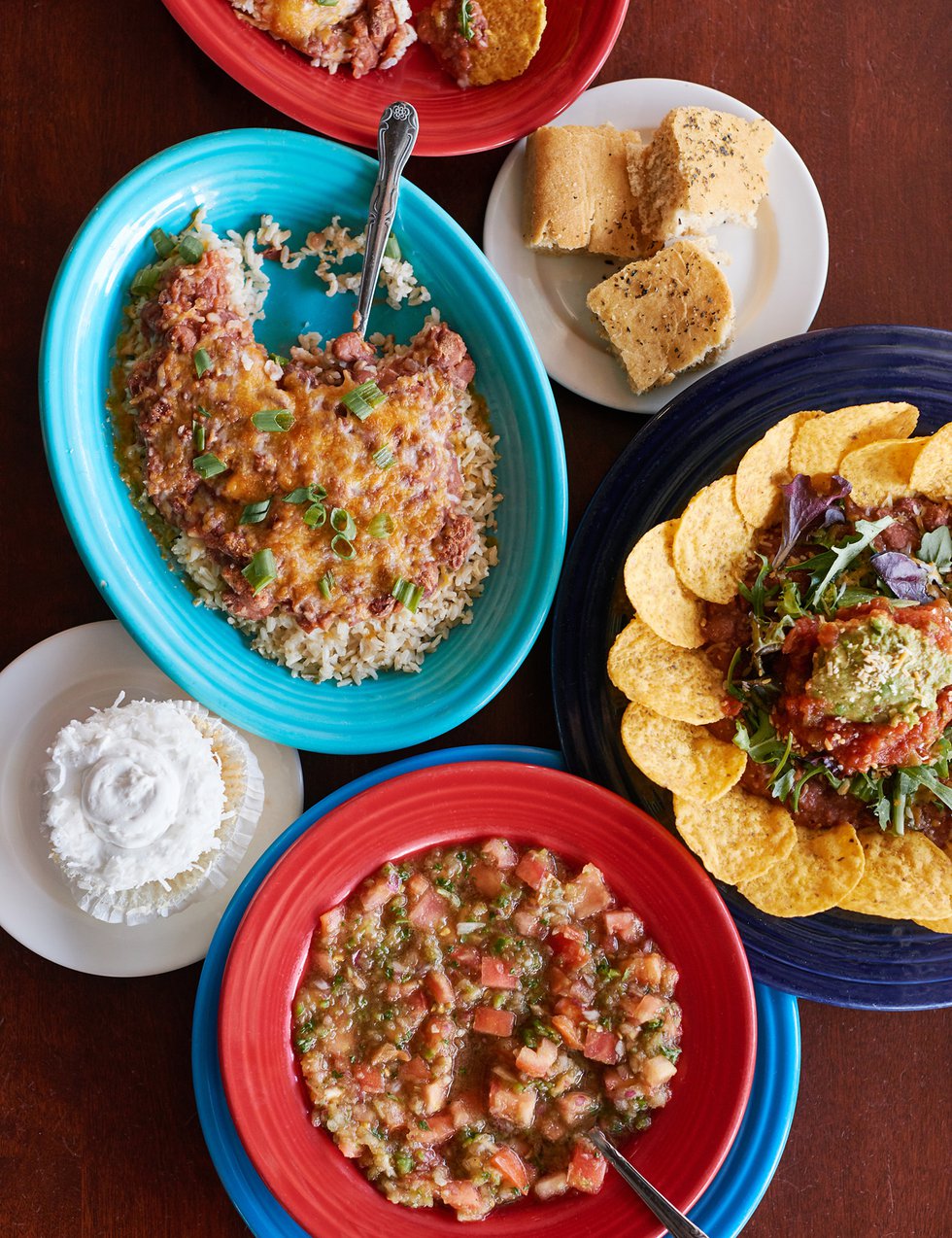
Evie’s red beans and rice, the Bozeman tostada, gazpacho and a coconut cupcake at Wildflour.
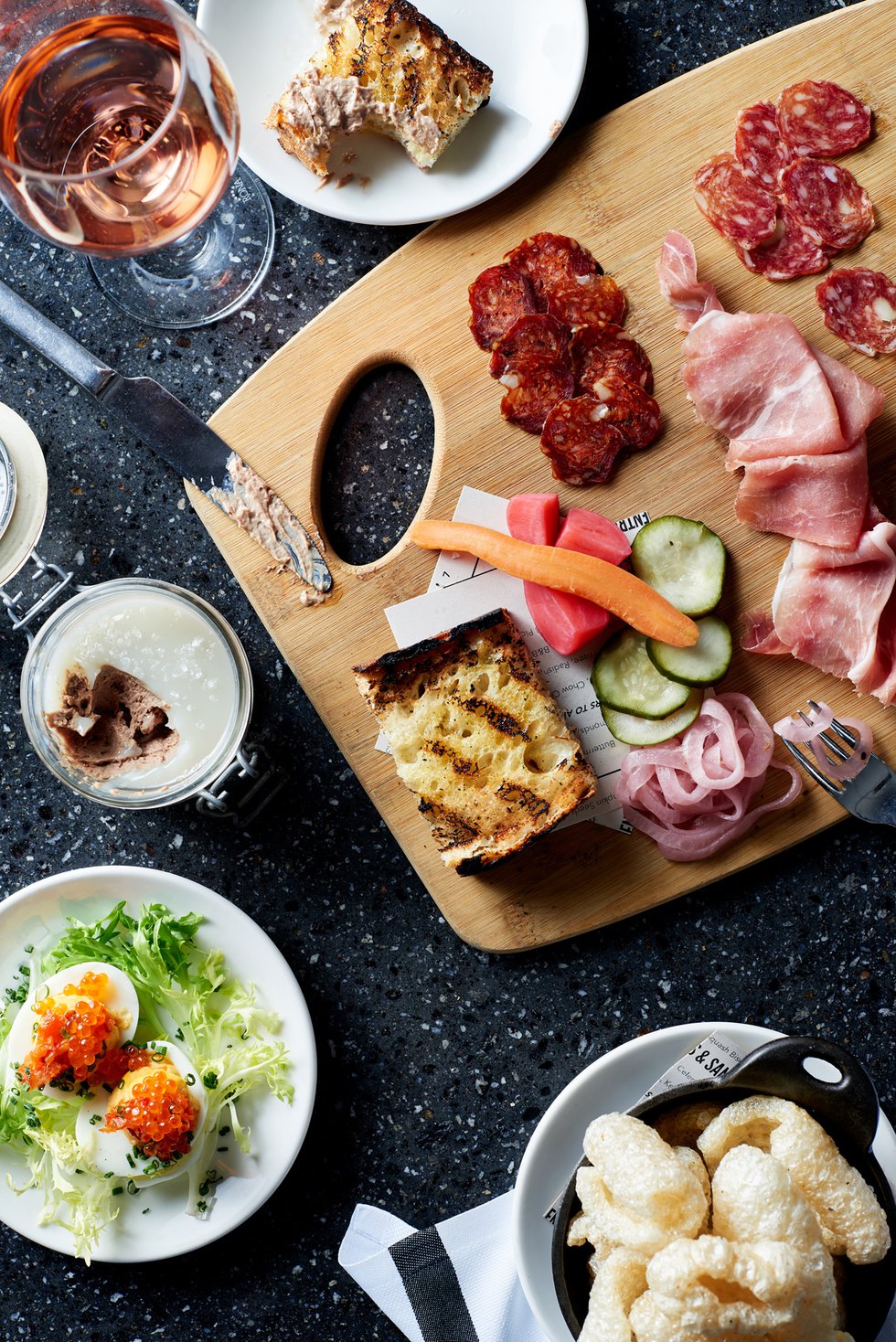
Housemade salumi board at The River & Rail.
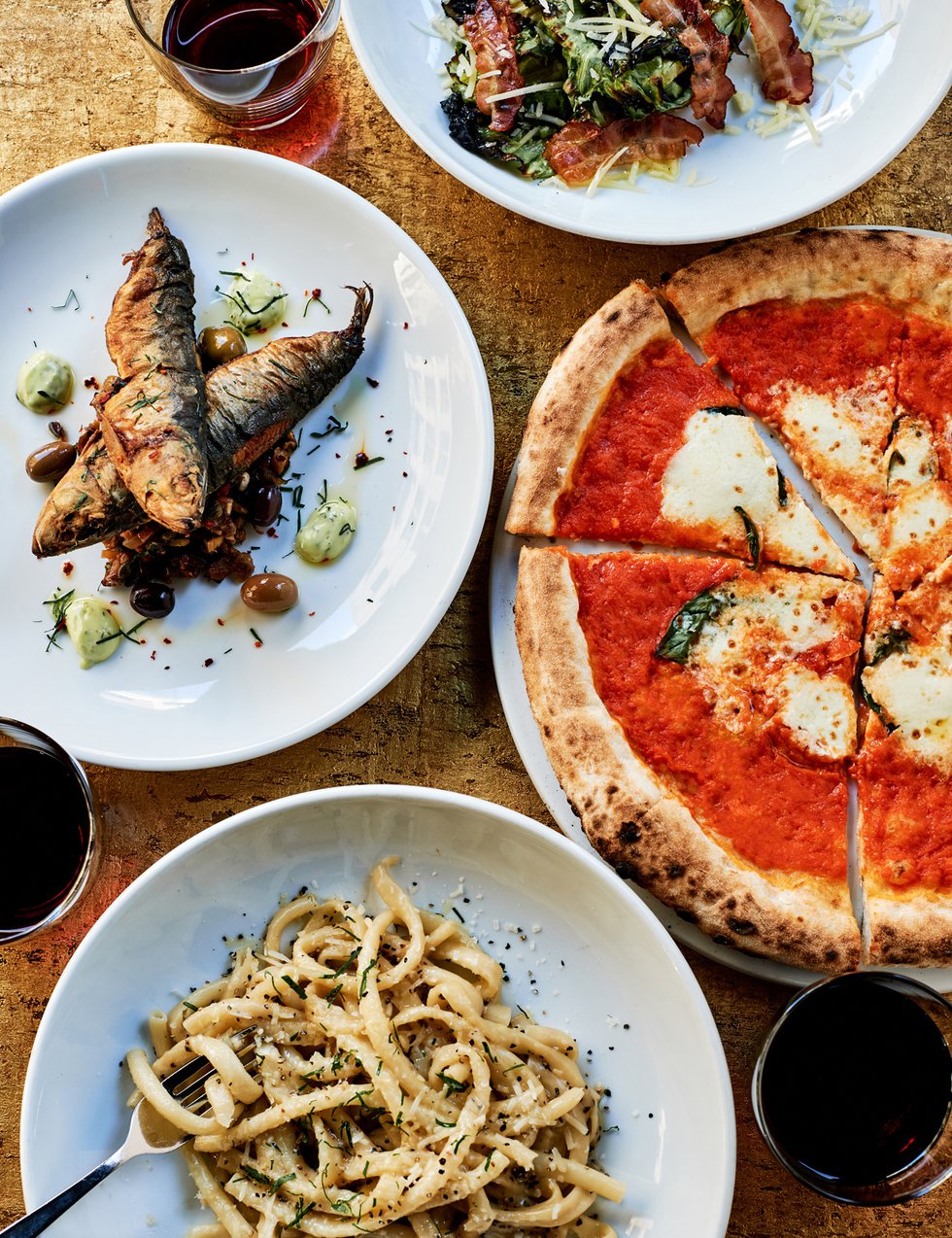
Charred escarole, wood-fired pizza, cacio e pepe and fried sardines at Fortunato.
When it comes to supporting the region’s growers, Local Roots also has enthusiastically taken up the charge. Patronizing Southwest Virginia’s small family farms isn’t just part of its mission—it’s the whole point. So, it’s fitting that this cozy 75-seat spot would be located across the street from the Roanoke Natural Foods Co-op, the largest cooperatively owned natural foods grocery store in Virginia and a familiar destination for consumers who care about making sustainable food choices.
Local Roots moves with the seasons, offering an unfussy approach to ingredients that change with the whim of the weather. Here, a vegetable salad can mean many things—roasted onion and charred eggplant with Camembert in October or Brussels sprouts and cauliflower in March—but come July, summer’s finest will shine just like nature intended.
Located on Kirk Avenue in the historic Shenandoah Building, Fortunato is a different kind of dining experience, with an interior concept that’s both modern and rustic, complete with wood and metal accents and big glass windows looking out onto downtown Roanoke. The Neopolitan menu is straightforward and uncomplicated, but ample. My family and I order a spread of antipasti that covers the table. Crispy, lightly fried sardines sit atop a small mound of silky eggplant; charred escarole is deep and earthy with just the right exclamation mark of lemon on the end; and a delicate carpaccio, plated with shavings of Caciocavallo, an Italian sheep’s milk cheese, disappears far too quickly.
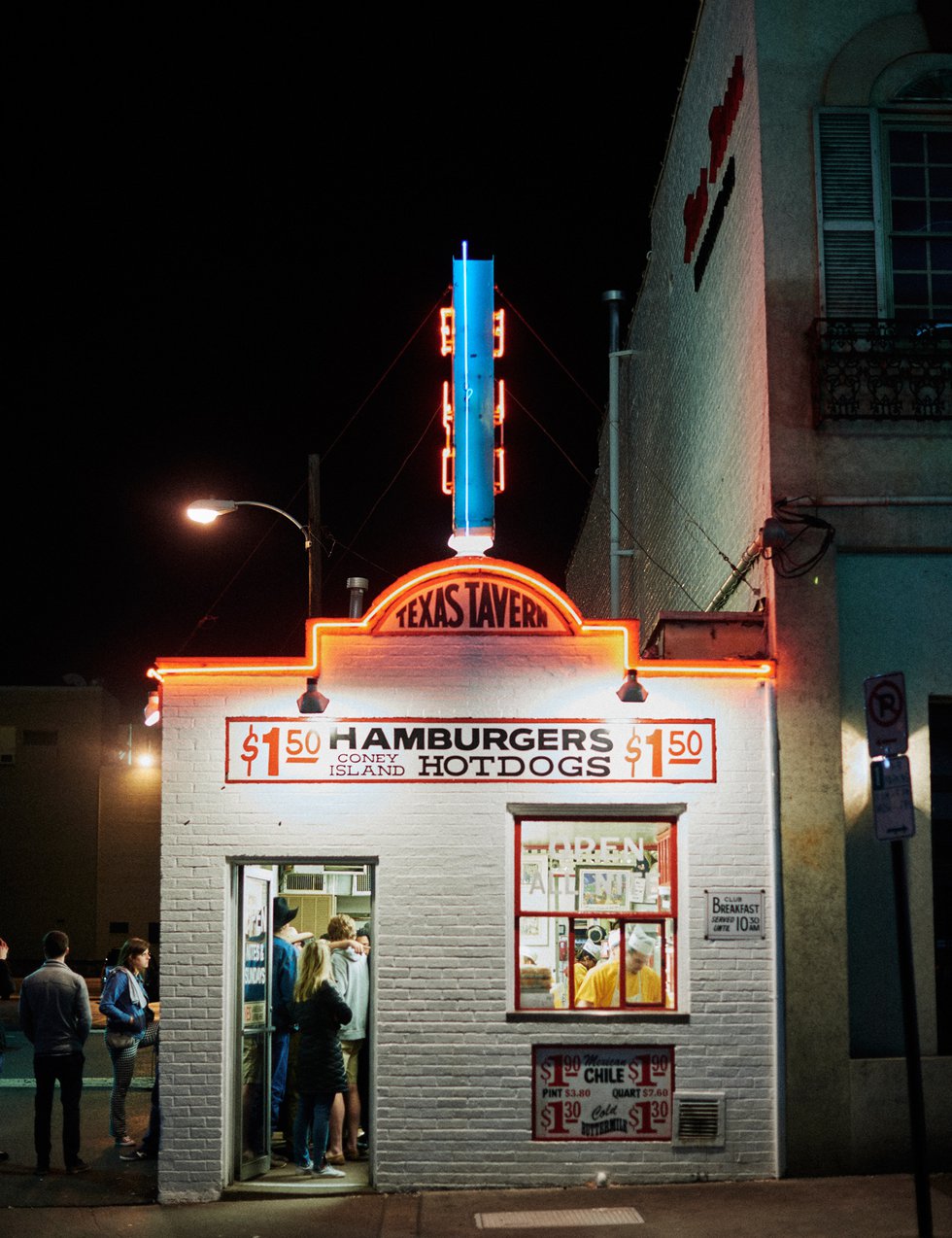
Texas Tavern
We move on through the menu with a swirl of perfect Cacio e Pepe, house-made with an al dente bucatini, and a flight of wood-fired pizzas. My uncle keeps saying “this doesn’t feel like Roanoke,” though perhaps that’s only because he’s more accustomed to the Roanoke of 20 years ago. He means it as a compliment, but it’s not entirely true. In many ways, it feels exactly like Roanoke; high quality ingredients presented without much pretense.
On the way to the car after dinner, we notice the old neon Texas Tavern sign just a few blocks away. We’re full of pizza, but instantly begin craving chili. Here’s a place that’s been part of Roanoke since 1930 and precious little about it has changed. My stepmom remembers that her dad, a dentist working on the same street in the 1960s, wouldn’t let her set foot inside the door, afraid of the “bad element” that might be enjoying a cheesy western at the 10-seat bar.
The next morning, my husband and I take our six-year-old, Lily, there for a breakfast of hotdogs and egg sandwiches. There are two men drinking black coffee after pulling overnight shifts. It turns out they’re not so scary at 8 a.m., and they offer stickers to Lily and laugh deeply when she asks, hopefully, “Is this a candy machine,” pointing to what must be the last cigarette machine in the city, maybe the world. We explain that it’s not, and scoot her down the street to Bread Craft for a chocolate croissant instead.
It’s impossible to talk about dining in Roanoke without mentioning Lucky, a hip downtown spot for lovers of craft cocktails and melodic pop music owned by the same team behind Fortunato—J.P. Powell and Hunter Johnson, with Executive Chef Jeff Farmer. This is an after-dinner oasis, where a big part of the allure is the atmosphere—contemporary and cool, but effortless, like the friend you grew up with who comes back to visit after touring the world with her indie rock band. But don’t be fooled, Lucky has a clever, locally-sourced menu too, with bivalves from Rappahannock Oyster Co. and a dish made with Leaping Water pork shoulder. It’s a bowl of slow-braised comfort with Anson Mills grits and a nuanced potlikker—to enjoy while catching up over a Lakeside Mai Tai, an update on a drink you thought you knew. It riffs on the classic Southern combination of peanuts and Coke, with a Fernet and peanut reduction and a Mexican Coca-Cola float on top.
To appreciate where Roanoke is now, it’s important to look at where it has come from. Unlike so many burgeoning restaurant cities, in Roanoke, there’s still a place for the restaurants that have been making great food since I was a kid.
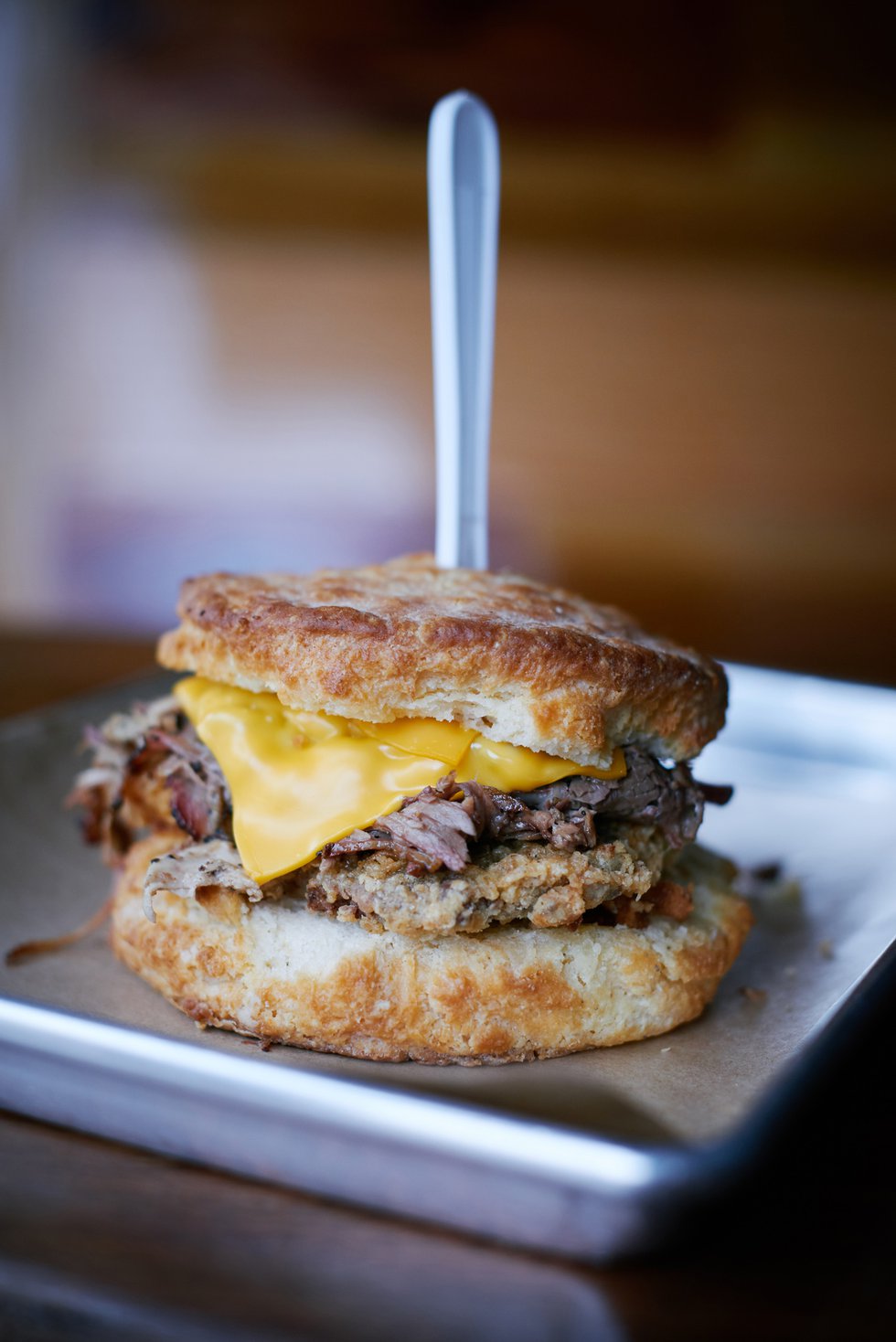
The Cowboy Crippler at Scratch Biscuit Company.
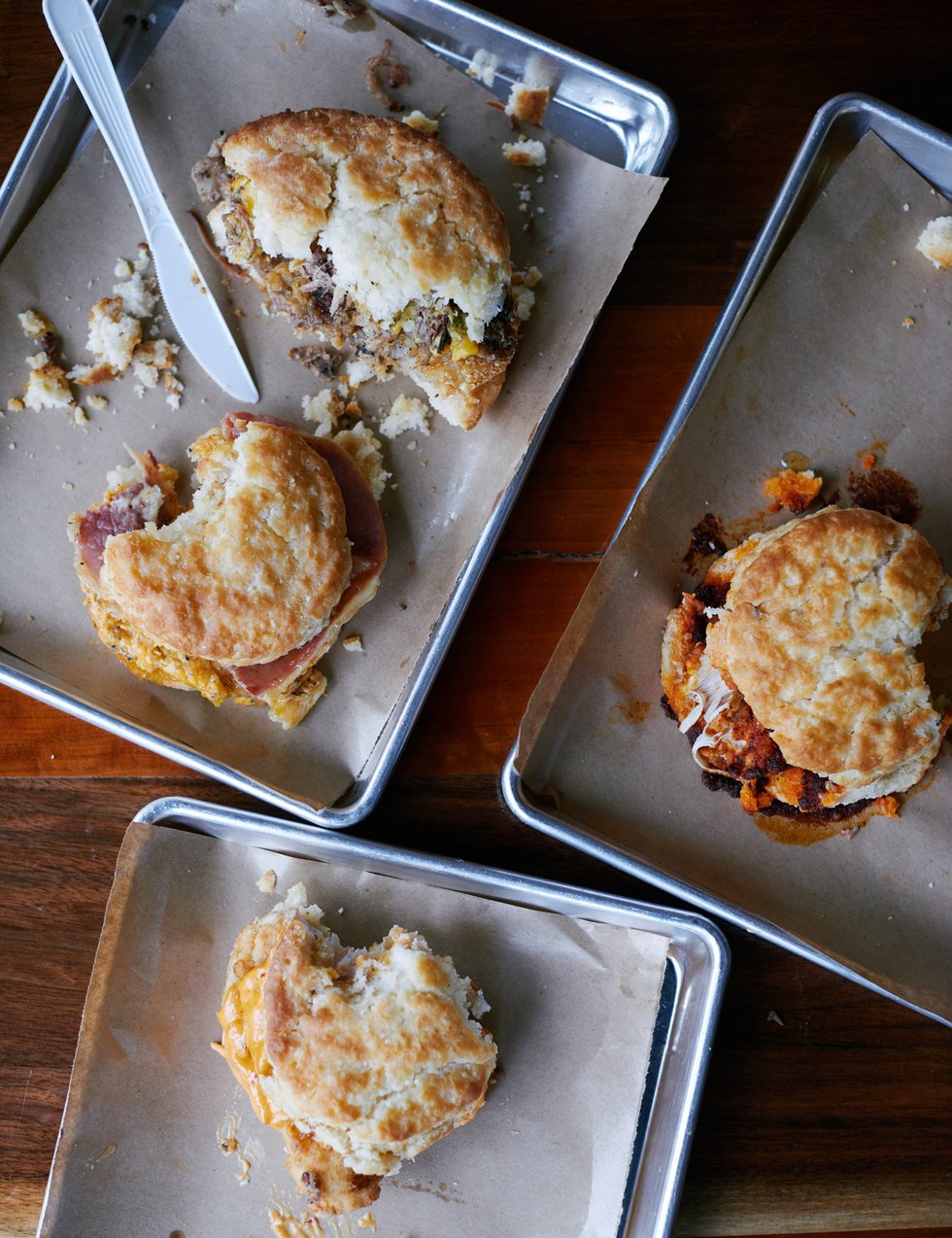
Biscuit sampling from Scratch Biscuit Company.
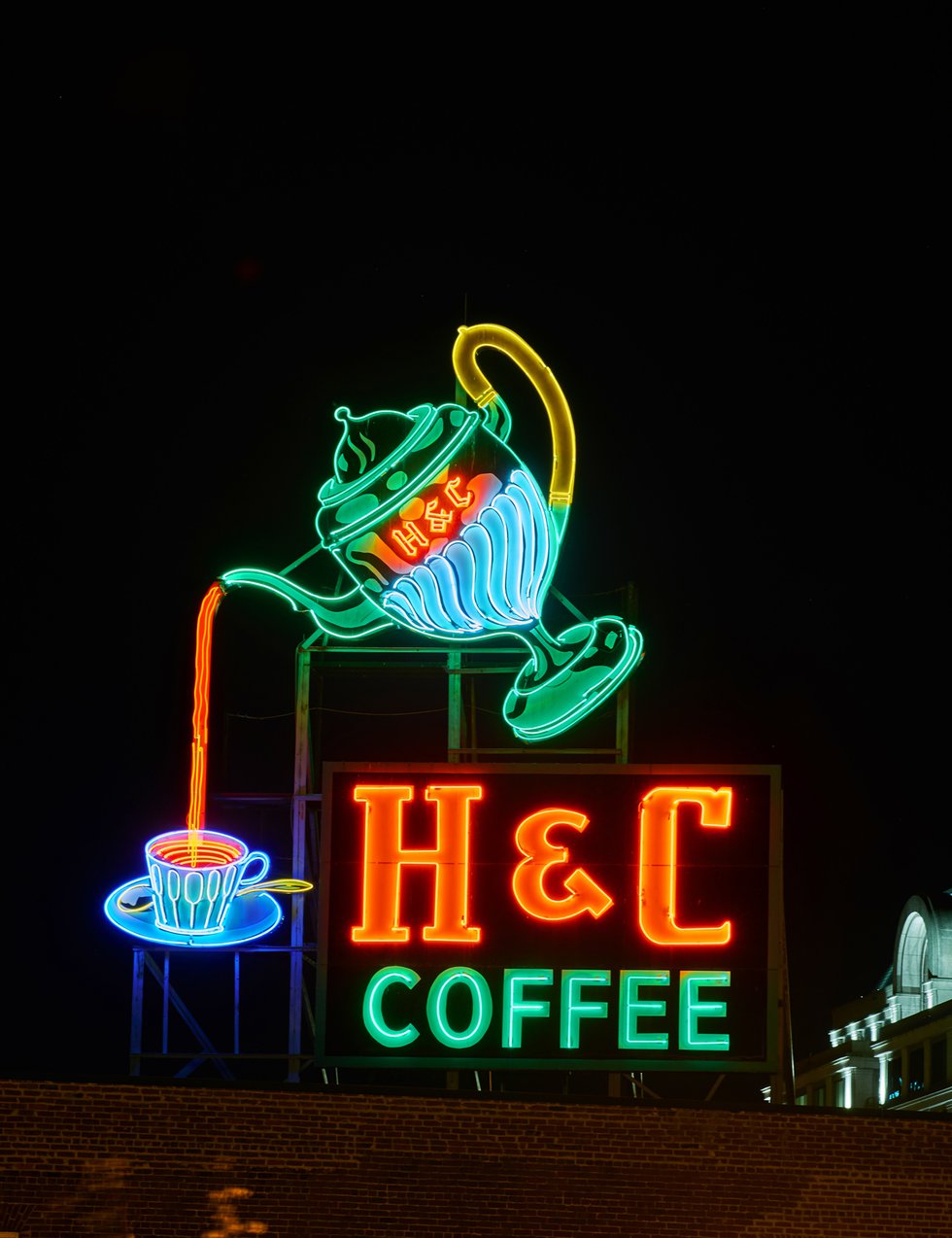
Roasting company H&C Coffee.
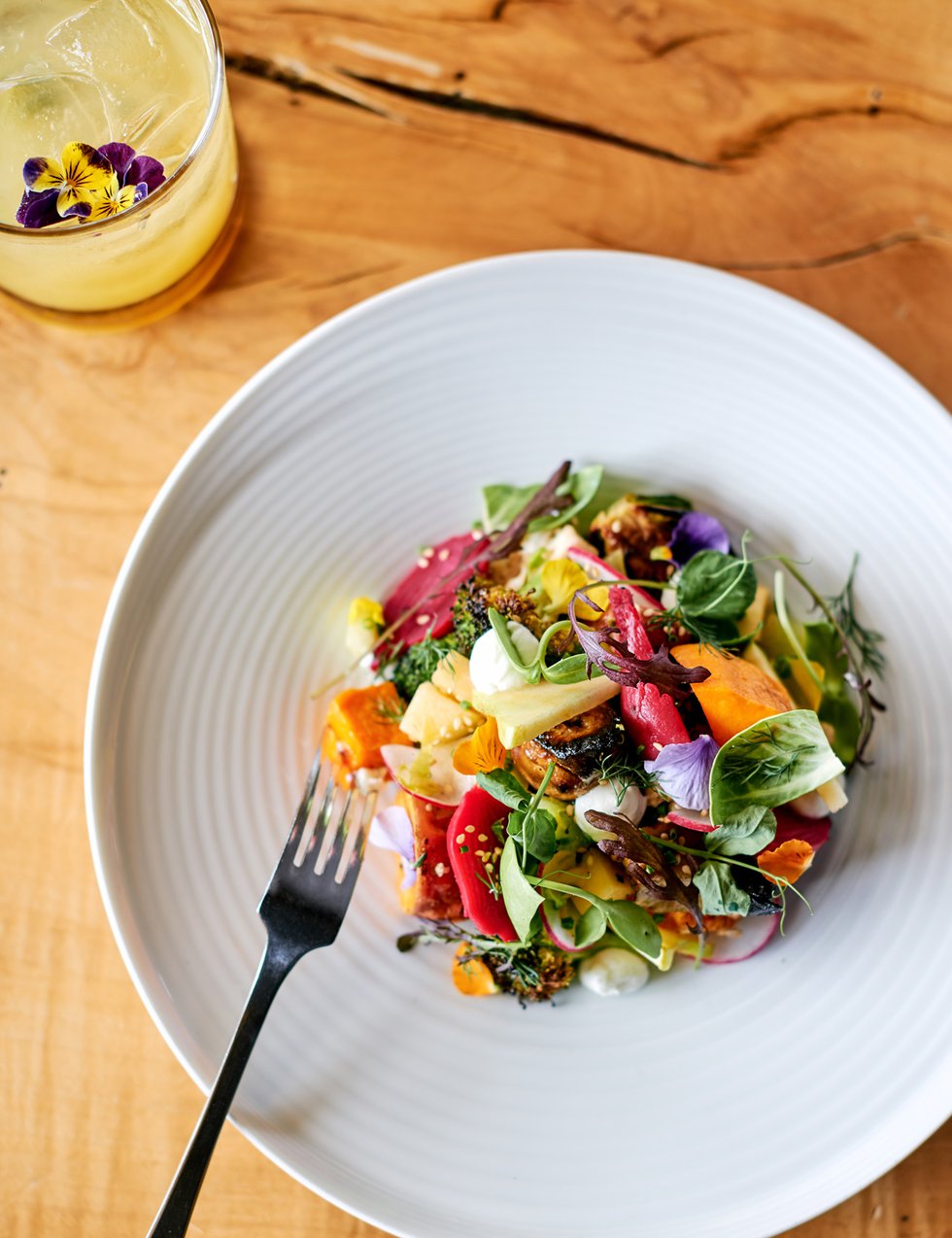
Seasonal vegetable salad at Local Roots.
I feel the same amazement that Wildflour Restaurant & Bakery has been in business since 1996 as I do when I see a former high school classmate at Fresh Market, pushing a cart full of groceries and a toddler through the aisles. Wildflour played such an important role in my food memories from 1998 to 2002 that I just assumed it was one of those things that would change with time, like me. Fortunately, that hasn’t happened, and when I return there, as I do on every trip to Roanoke, I order my favorites—the Bozeman tostada, Evie’s red beans and rice and the gazpacho—and they come as I expect them, a time capsule of flavors.
A trip to the New Yorker Deli brings on the same feelings. Never much for a meaty sub in my youth, I tended toward the grilled cheese sandwiches. But on these visits, I eat like my Dad would have—towering roast beef and pastrami, a sailor on rye—and I remember the look of satisfaction that would dance across his eyes as I watched him then, slurping a fountain Dr. Pepper.
In the 40-or-so years that it’s been on Williamson Road, the deli hasn’t seen a need to change much, and I’m grateful for its consistency. The Russell family, who have owned the place all along, have preserved the exposed brick walls, the booths set back under arched façades, the lighted lazy Susan display case of pies and the deli’s beloved cheesecake, as well as the long case stocked with knockwurst, salami and sliced cheeses, separated by plastic parsley sprigs. It’s still a proudly cash-only establishment; come prepared or you’ll have to slink off to an ATM before ordering.
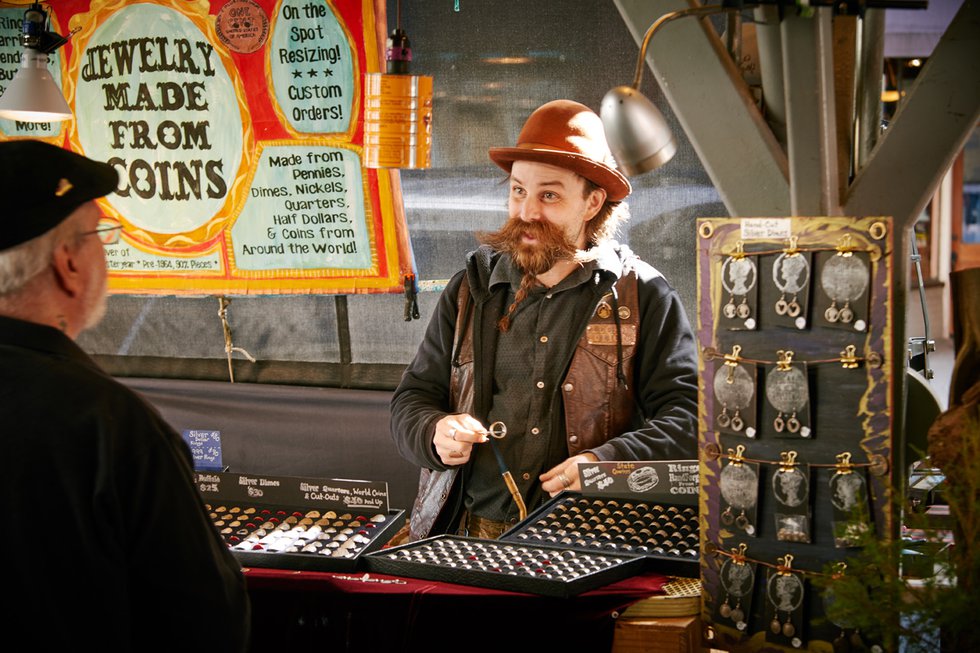
Vendor at the City Market.
Then there’s Luigi’s. Channeling a Goodfellas feeling with dark lighting and a red-sauce-heavy Italian-American menu, Luigi’s has been the fancy place to go for as long as I can remember. I went there for my 16th birthday and again for prom that year. It was at one of these white-linened tables that my mom sat down to a plate of beef a la matriciana on the night before I was born. In the 34 years since, little has changed. The martinis are still ice cold, the Caesar salad is still served tableside, and it’s still a safe bet for celebrating a birthday, or in my case, inducing one.
This past year has given me cause to visit Roanoke often, and on each trip, I’ve had the pleasure of discovering something unexpected in old, familiar places and something comforting in the new. Leaving, as the mountains recede in my rearview mirror, I take a minute to appreciate the town that raised me—its history and future, both of which are filled with memorable meals and special food.
This article originally appeared in our June 2018 issue.








